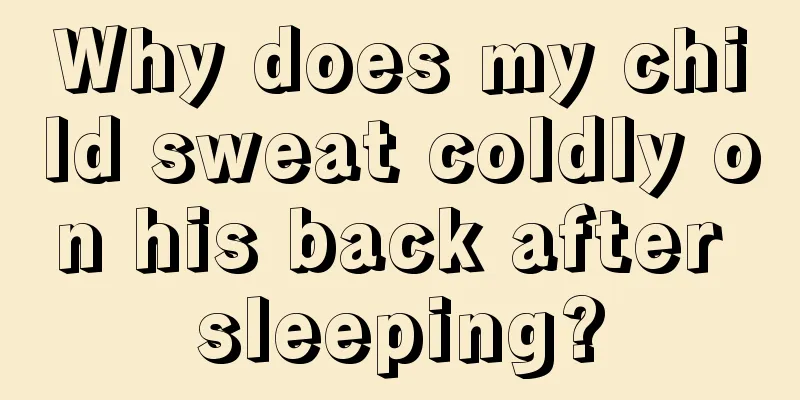What to do if your child has athlete's foot and cracks

|
Athlete's foot is a very common phenomenon in daily life. Generally, most of the causes of athlete's foot are caused by fungal infections. Athlete's foot must be treated in time. If not treated in time, cracks will appear on the feet. Cracks on the feet caused by athlete's foot must be treated as soon as possible. It is best to use medication under the guidance of a doctor. During the treatment period, you must pay attention to the breathability of your feet during rest, and you also need to keep your feet clean. The best way to treat athlete's foot Cut off the source of infection: dry and disinfect shoes and socks In fact, many people see results after applying some medicines, but why does it relapse after the medicine is stopped? In fact, this is because we have not cut off the source of infection at all. There will be fungi in the shoes and socks that we have used before. We must thoroughly disinfect them. At the same time, we must also pay attention to keeping shoes and socks dry in life, otherwise the feet will sweat and breed bacteria, which will also cause relapses. If you have athlete's foot, you can buy a dryer to disinfect it. This can cut off the source of bacteria and help you recover better. First of all, athlete's foot will definitely be caused by the shoes and socks you wear. Because the feet sweat, the sweat cannot be dissipated, and over a long period of time it will cause athlete's foot. So at this time we can change into breathable shoes and socks, which can effectively help us treat athlete's foot. At the same time, when you are in public places, do not use shoes and socks used by others to avoid infection. Western medicine treatment: foot bath, ointment application Allylamine, salicylic acid preparations or imidazole solutions or creams can all treat athlete's foot. Use them once or twice a day for two weeks and continue using them for two courses to be effective. The specific treatment method is to put potassium permanganate solution into water, soak your feet, then apply gentian violet or athlete's foot powder, and then apply ointment after the feet are dry. If it is keratotic athlete's foot, you can also wrap your feet with plastic wrap after applying the ointment to facilitate the peeling of the thick skin on your feet. Traditional Chinese Medicine Treatment: Acupuncture Western medicine is very effective in treating athlete's foot at first, but it is not easy to eradicate it. After athlete's foot recurs, taking the medicine again may be effective, but the human body will gradually develop drug resistance. Therefore, the effect is very good when combined with traditional Chinese medicine treatment. Patients with athlete's foot can try it and see how effective it is. Select acupoints such as Zusanli, Xuanzhong, Sanyinjiao, Yanglingquan, etc., and match the acupoints according to the constitution and symptoms. If the spleen and stomach are weak, add Pishu and Weishu. If there is numbness in the feet, take Bafeng and Taibai. If there is beriberi affecting the heart, use Xinmu and Juque points, which have the effect of relieving restlessness and fullness. For patients with excess symptoms, acupuncture and moxibustion are used for purgation, while for patients with deficiency symptoms, tonification is mostly used. In addition to acupuncture, there are also electromoxibustion and water needle treatment methods, which work on the same principle. Four major symptoms of athlete's foot 1. Symptoms of fungal athlete's foot It often occurs between the third and fourth, and between the fourth and fifth toes. Initially, the spaces between the toes are damp and whitish, and after drying and scaling, the scaly skin is peeled off to reveal a moist, flushed erosive surface that is extremely itchy and prone to secondary infection. 2. Symptoms of blister-type athlete's foot It often occurs on the edge of the foot. Initially, they appear as small blisters with thick and full walls. Some of them may merge into large blisters. The blister fluid is transparent and there is no redness around them. The patient feels extremely itchy, and scratching often leads to secondary infection, such as tinea pedis, erysipelas, lymphangitis, etc. 3. Symptoms of keratotic athlete's foot It often occurs on the heel. Because fungal athlete's foot is not cured, multiple bacteria infection becomes tinea pedis, which causes the skin to become rough, thick and dry, with keratinization and desquamation, itching, and easy cracking. This type of disease has no blisters or suppuration, and the course of the disease is slow and does not heal for many years. 4. Symptoms of erosive athlete's foot It manifests as local softening and whitening of the epidermal stratum corneum. Due to constant friction when walking, the epidermis falls off, revealing a bright red eroded surface; in severe cases, the skin between the toes and the junction of the toes and the soles of the feet can be affected, with severe itching, mostly between the 3rd, 4th, and 5th toes. Common in people with excessive sweating. |
<<: Can children’s vaccinations be postponed?
>>: What causes acne on children's faces?
Recommend
Premature babies cannot lift their heads at three months old
If a premature baby still cannot lift his head af...
What to do if your two-year-old baby vomits
If a two-year-old baby experiences nausea and vom...
What diet should be provided for babies with diarrhea?
Every mother's heart is tied to her child. Wh...
Does changing milk powder have any effect on newborns?
If you pay attention to the method when changing ...
What is the cause of the newborn's bloated belly?
Children especially need care from their parents ...
What's wrong with a child's nosebleed?
Nosebleeds can be caused by various reasons, and ...
What should I do if my baby has a fever at seven months old?
Some babies have fever, so they should pay attent...
One day old baby keeps crying
Children will cry when they feel uncomfortable, a...
Is rubella contagious in children? How to treat and prevent it?
Whether rubella in children is contagious, as wel...
What causes baby's fingernails to turn purple?
There are many times when we find various conditi...
4-year-old baby with intellectual disability
If a baby has low intelligence during growth, it ...
What does fetal renal pelvis separation mean?
Renal pelvis separation usually occurs when kidne...
How to cure a child’s cold and stuffy nose?
When children are very young, they are easily inf...
What to do if the baby does not defecate for three days
Due to weather changes, people always have reason...
Children's mouth herpes
Herpes is a skin disease that can grow on every s...









